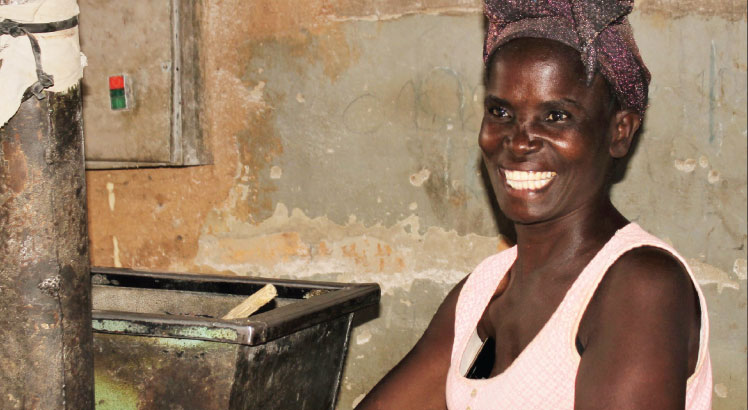Neef boosts women’s hopes
In 1999, over 30 women with different disabilities around Kasungu Town formed a business group to fight stigma and discrimination.
Its founding chairperson Eliza Chikafumbwa and member Ruth Banda say Tiyanjane Disability Group was born to instill confidence in its members and prove to the world that disability is not inability.
“Our main objective was to stand up and be counted in society so that we could have our voice heard,” Banda explains. “We pushed our way to attract sponsors as a group and as individuals to become economically independent,” she continued.
In 2005, they received a maize mill from the Local Development Fund (LDF) for the benefit of Juma villagers and surrounding communities in Traditional Authority Mwase.

Then Tiyanjane’s membership had shrunk to 20 due to deaths and migration. The loss continued until the remaining six were joined by three men with disabilities.
“Despite the exodus, the proceeds of the maize mill could not meet our economic needs,” says Banda. “Business was so slow that we could raise just about K3 000 a day while neighbouring competitors could make more than double that amount.”
Random market assessments by the group revealed that they were losing customers because the mill was only processing maize flour.
“Unlike us, our competitors had mills for separating husks from the grain, so customers could have it all done at one place,” explains Chikafumbwa.
The findings left the group restless. They brainstormed ways to acquire the desired mill to equally turn their business into a one-stop centre.
With little success, Chikafumbwa and his group knocked on doors of both State-owned and private financing institutions.
However, a breakthrough came when they submitted their proposal to the National Economic Empowerment Fund (Neef) which embraced the group’s business idea.
“Until someone tipped us to try Neef, we never thought we could get financial support from any financing institution because we had tried them all or so we thought,” explains Chikafumbwa.
Prior to the successful bid, the group believed one ought to be either politically connected or know someone at the helm to get the State-sponsored loan.
“In 2021, for a try, we applied for a K2 million loan and got it without any hustle,” says the chairperson.
Tiyanjane Disability Group now owns the desired maize mill and business is rising.
“The coming of this maize mill has transformed our lives: On a good day, we make up to K50 000,” explains Chikafumbwa.
As individuals, the group members also run small-scale businesses such as tailoring and groceries.
The group has completed repaying the loan.
They have since applied to Neef for individual loans to boost their private businesses while reaping the benefits of the maize mill.
“After settling the second loan, the group intends to apply for another loan for yet another mill,” says Chikafumbwa. “Our group plans to plant as many maize mills as possible until each member owns one.”
The group sounds determined to achieve its lofty dream despite incessant electricity blackouts that erode their business.
Neef has become a go-to financier for women in Kasungu where various businesses are mushrooming from the fund.
In TA Kaluluma, Chimwemwe Women’s Club, from Joloji Village, also have a lot to show for their loan.
Agnes Winnie Soko, a widowed mother of four, is the treasurer of the Club. She saw her world crumble when her husband died in 2018, but a K250 000 loan from Neef gave her a lifeline.
Soko’s capital has more than tripled since she started selling secondhand clothes.
“I started with one bale, but today I get two or three bales at once. I now have a capital of K780 000,” she explains.
Soko has also constructed and stocked a grocery shop in her backyard.
Like most of her group members, Soko is thinking of getting a bigger loan to top up her business.
“My ambition is to buy a pick-up so I also venture into the business of transporting fellow mobile traders’ good to various markets at a fee,” explained Soko.
Soko is confident that this dream will come true.
“Neef has come in time to relieve me of the anxiety that comes with widowhood. Now I feed and educate my children without hustles,” concluded Soko.





